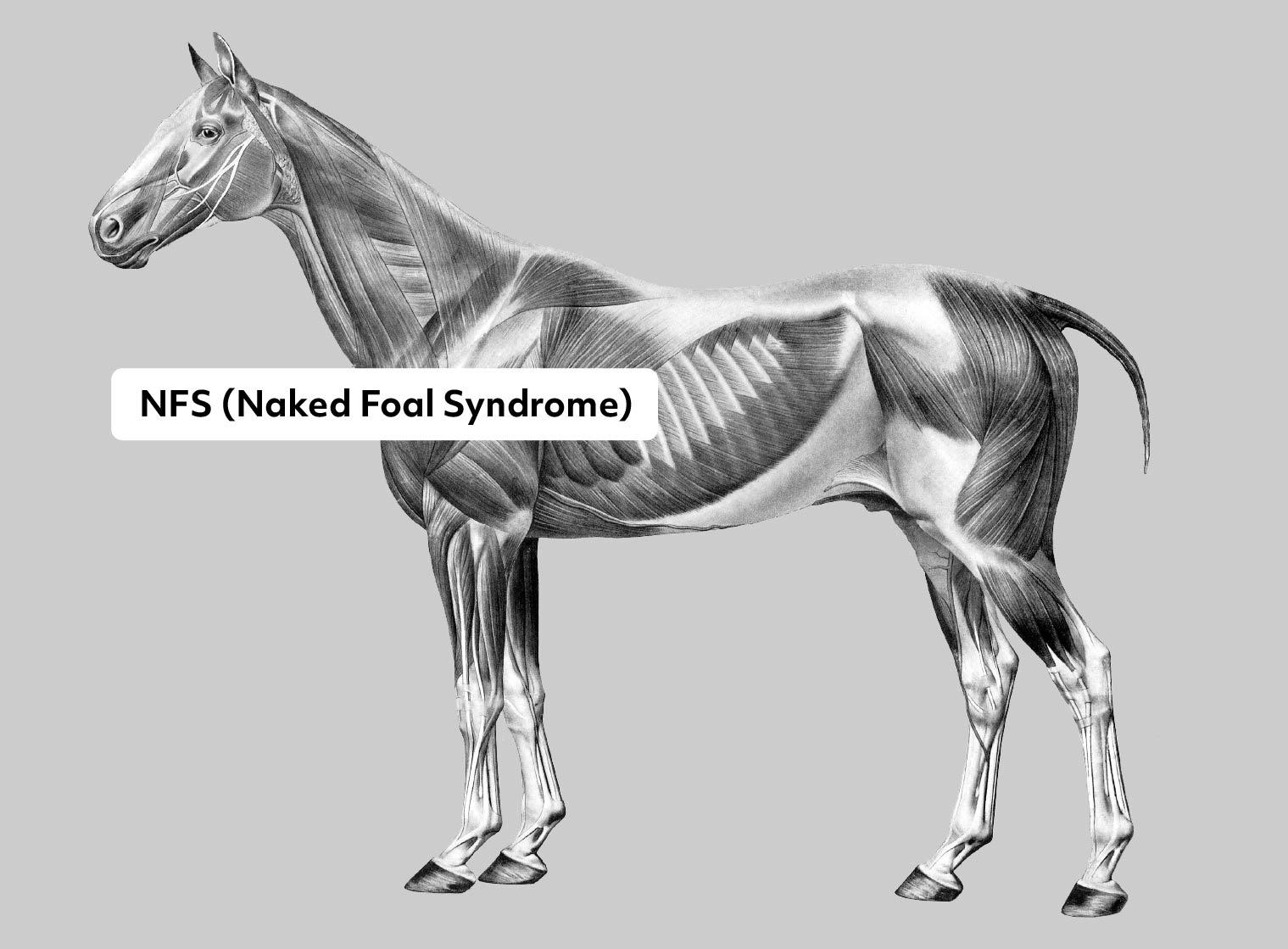Naked Foal Syndrome (NFS)
Gene or Region: ST14
Reference Variant: G
Mutant Variant: T
Affected Breeds: Akhal Teke
Research Confidence: Moderate confidence, strong correlation in larger studies
Explanation of Results: nfs/nfs = homozygous for Naked Foal Syndrome, trait likely expressed/likely lethal nfs/n = heterozygous for Naked Foal Syndrome, carrier n/n = no variant detected
General Description for Naked Foal Syndrome
Naked Foal Syndrome (NFS) is a recessive genetic disorder resulting in the birth of foals with little to no hair and a general weakness with death occurring early in life (weeks to months).
References
Bauer, A., Hiemesch, T., Jagannathan, V., Neuditschko, M., Bachmann, I., Rieder, S., Mikko, S., Penedo, M. C., Tarasova, N., Vitková, M., Sirtori, N., Roccabianca, P., Leeb, T., & Welle, M. M. (2017). A Nonsense Variant in the ST14 Gene in Akhal-Teke Horses with Naked Foal Syndrome. G3 (Bethesda), 7(4), 1315-1321. doi: 10.1534/g3.117.039511
More Horse Health
Lavender Foal Syndrome
Lavender foal syndrome (LFS), also known as coat color dilution lethal, is a neurological dysfunction in newborn foals. Symptoms are apparent at birth and include seizures, severe hyper-extension of limbs, neck and back, stiff paddling leg movements, involuntary eye movement and inability to stand or sit upright. The coat usually has a dilute color that ranges in shade from silver to a pale lavender/pink. As there is no treatment, affected foals are humanely euthanized.
Lordosis
Lordosis (L1, L2, L3, L4), also known as "Swayback", is a curvature or dip in the spine that is often seen in older horses. However, in the American Saddlebred, this condition also affects younger horses. These animals do not appear to experience pain from their condition and are still able to be used under saddle.
Malignant Hyperthermia
Malignant hyperthermia (MH) is a muscle disorder in which anesthesia, stress, or extreme exercise trigger a hyperthermic state. Symptoms include high temperature, increased heart rate, high blood pressure, sweating, acidosis, and muscle rigidity. If symptoms are not immediately resolved, death is likely to occur.
Myosin-Heavy Chain Myopathy
Myosin-Heavy Chain Myopathy (MY; previously "IMM") is a genetic muscle disease found most commonly in stock-type horses that can result in two different presentations, Immune-Mediated Myositis (IMM) and Nonexertional Rhabdomyolysis “tying up,” which are both characterized by muscle damage or loss. Both presentations are associated with the same genetic variant. Horses with MYHM may exhibit one or both presentations at different times in their lives, although some horses carrying the variant might not display any symptoms at all.
